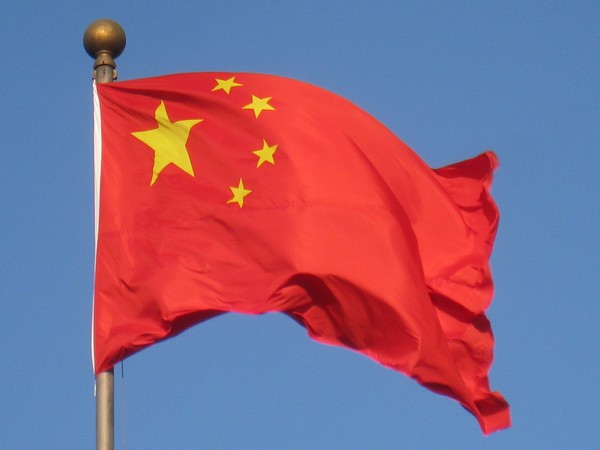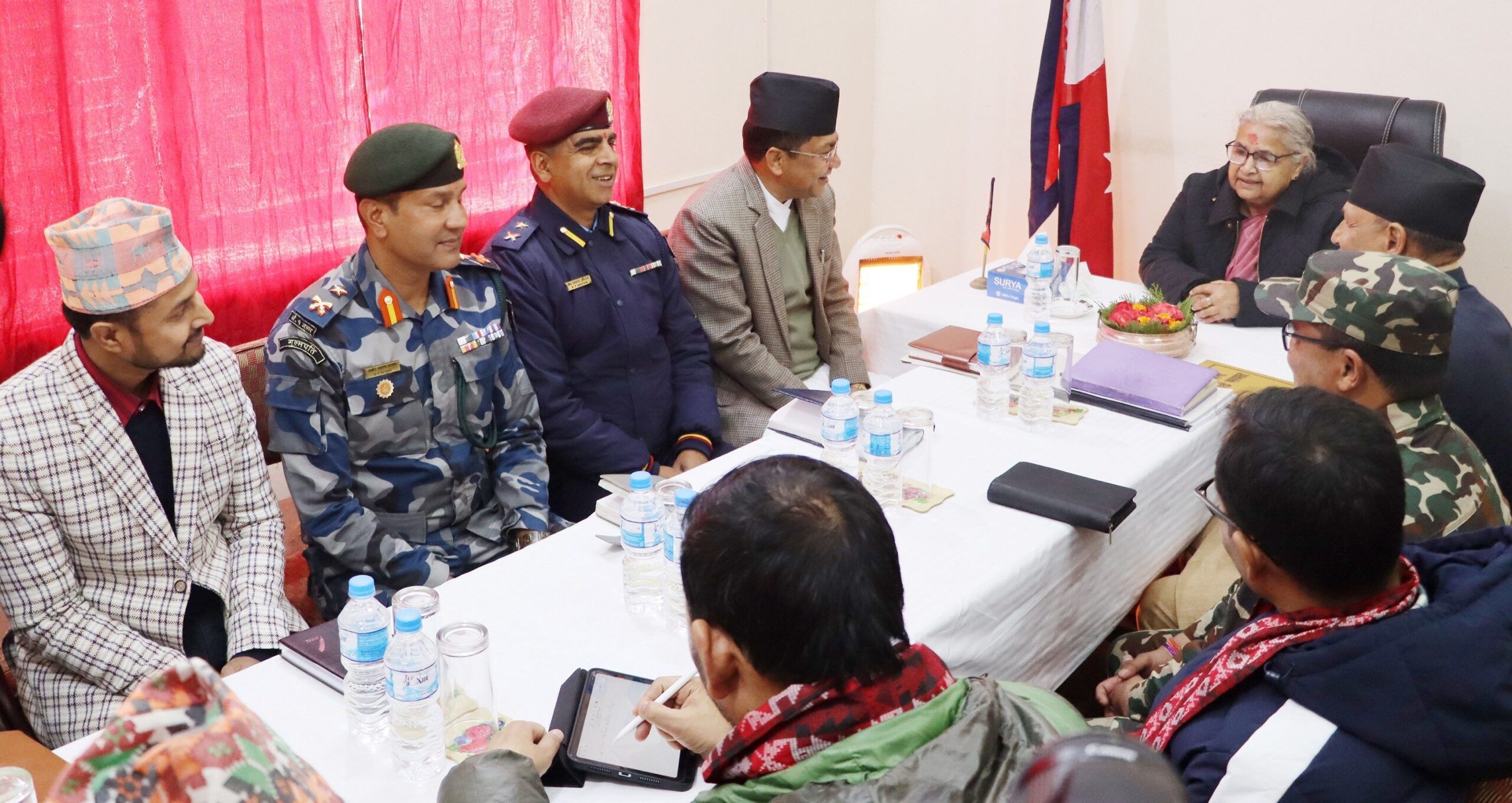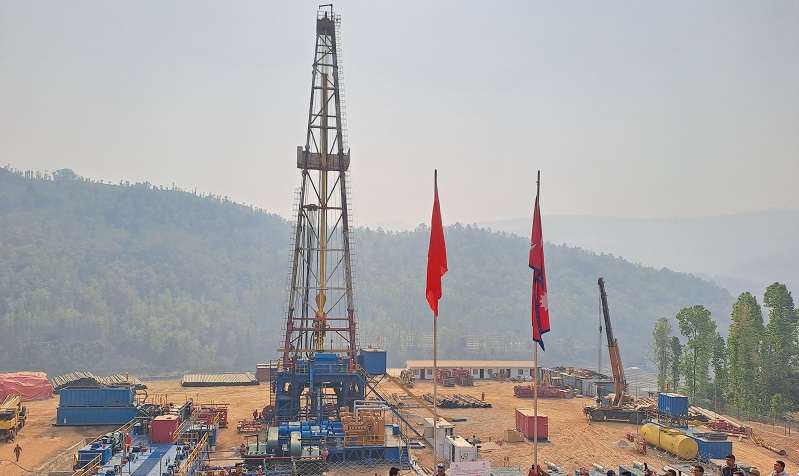In recent years, China has intensified its pursuit of natural resources and geopolitical influence, focusing notably on Tibet and the Maldives. This strategy involves aggressive environmental exploitation and water politics, with Tibet emerging as a critical battleground due to its designation as the “Third Pole” and vast glacial reserves.
These reserves, crucial for 10 major Asian river systems and billions of people, are under threat from China’s relentless pursuit of economic gain, leading to severe environmental degradation.
The Jiama copper-gold polymetallic mine, operated by China Gold International Resources, serves as a stark example of the destructive impact of large-scale mining in Tibet.
Despite a recent setback in March 2023—a tailings dam failure prompting a year-long closure—the mine has resumed operations and plans further expansion.
The international community faces a pressing need to strengthen legal frameworks to prevent the weaponization of water resources.
China’s exploitation of Tibet’s resources not only endangers delicate ecosystems but also jeopardizes regional stability and the sovereignty of neighboring nations.
Strengthening international legal frameworks to prevent the weaponization of water resources is also crucial. As China continues to leverage its control over Tibet’s resources for geopolitical gain, the world must recognize the long-term consequences of these actions.
As China continues to leverage its control over Tibet’s resources for geopolitical gain, global awareness of the long-term consequences of these actions becomes increasingly critical.
This rapid return to business as usual, coupled with the construction of a new Phase III tailings dam, demonstrates China’s prioritization of resource extraction over environmental concerns.
The environmental consequences of such mining activities are severe. Water contamination from heavy metals like copper, lead, and arsenic poses immediate threats to local populations and ecosystems.
The incident at the Guolanggou dam serves as a stark reminder of the ongoing risks, with the potential for future spills remaining a grave concern.
Beyond the immediate environmental impact, these mining operations are eroding Tibet’s cultural and spiritual heritage.
The Jiama Valley, the birthplace of the first king of the Tibetan Empire, has been transformed from a sacred site into an industrial zone.
This desecration of holy lands prevents pilgrims from accessing sites of historical and religious importance, effectively severing Tibetans’ connection to their ancestral heritage.
China’s exploitation of Tibet’s water resources extends beyond its borders, as evidenced by its recent “donation” of 3,000 metric tons of Tibetan glacial water to the Maldives.
This move, occurring simultaneously with the implementation of water conservation regulations in Tibet, reveals Beijing’s cynical use of water as a geopolitical tool.
The timing of these water deliveries, coinciding with the Maldivian President’s state visit to China and the signing of 20 agreements for financial and military assistance, underscores the transactional nature of China’s “generosity.”
This water diplomacy is part of a broader strategy to extend Chinese influence in the Indian Ocean region, leveraging the Maldives’ vulnerability to climate change and its need for freshwater resources.
Meanwhile, Tibetans face increasing water scarcity due to Beijing’s systematic water conservation campaigns.
The forced relocation of Tibetans from water-rich areas like Gangkar township to make way for Chinese water bottling facilities further illustrates the prioritization of commercial interests over the needs of local populations.
China’s control over Tibet’s water resources positions it as a potential “water hegemon” in Asia. With the capacity to influence eight major transboundary river systems, Beijing holds significant leverage over lower riparian states including Bangladesh, India, and Southeast Asian nations.
This control not only serves China’s domestic economic interests but also provides a powerful tool for foreign policy manipulation.
Experts warn that China’s dam-building spree, with numerous dams already constructed, poses an unprecedented threat to regional water security.
The potential for China to weaponize these water resources against neighboring countries cannot be overstated, as it could significantly impact agriculture, energy production, and overall economic stability in the region.
The environmental consequences of China’s actions in Tibet extend far beyond its borders. The degradation of the Tibetan plateau, often called the “water tower of Asia,” threatens the long-term water security of billions of people across the continent.
Climate change impacts, accelerated by China’s damming and mineral extraction activities, are altering the delicate balance of this crucial ecosystem.
Moreover, the human cost of these policies is immense. Tibetans are being systematically marginalized in their own land, forced to relocate from ancestral territories, and denied access to their own water resources.
The cultural and spiritual erosion caused by these actions threatens the very identity of the Tibetan people.
China’s exploitation of Tibet’s resources and its water politics in the Maldives represent a dangerous form of environmental imperialism that demands urgent international attention.
The implications of these actions extend far beyond the immediate regions, threatening ecological balance, cultural heritage, and geopolitical stability across Asia.
The international community must demand transparency and environmental accountability for Chinese mining and damming operations in Tibet, support the rights of Tibetans to manage their own natural resources, and develop regional water-sharing agreements that ensure equitable access for all riparian states.
There is a pressing need to invest in alternative freshwater solutions for vulnerable nations like the Maldives to reduce dependency on Chinese “water diplomacy.”
Failure to act now could result in catastrophic consequences for the environment, regional stability, and the lives of billions who depend on the water flowing from the “Roof of the World.”
Failure to act now could result in catastrophic consequences for the environment, regional stability, and the lives of billions who depend on the water flowing from the “Roof of the World.”
Strengthening international legal frameworks to prevent the weaponization of water resources is also crucial. As China continues to leverage its control over Tibet’s resources for geopolitical gain, the world must recognize the long-term consequences of these actions.
The exploitation of Tibet and the manipulation of vulnerable nations like the Maldives are not just regional issues but global concerns that require a coordinated international response.
Only through concerted effort can we hope to protect the fragile ecosystems of the “Third Pole” and ensure a sustainable, equitable future for all nations dependent on Asia’s vital water resources.
The time for action is now, before irreversible damage is done to both the environment and the geopolitical landscape of the region.
The international community must unite to challenge China’s environmental imperialism, protect the rights of Tibetans and other vulnerable populations, and ensure the sustainable management of Asia’s critical water resources.
Failure to act now could result in catastrophic consequences for the environment, regional stability, and the lives of billions who depend on the water flowing from the “Roof of the World.”












